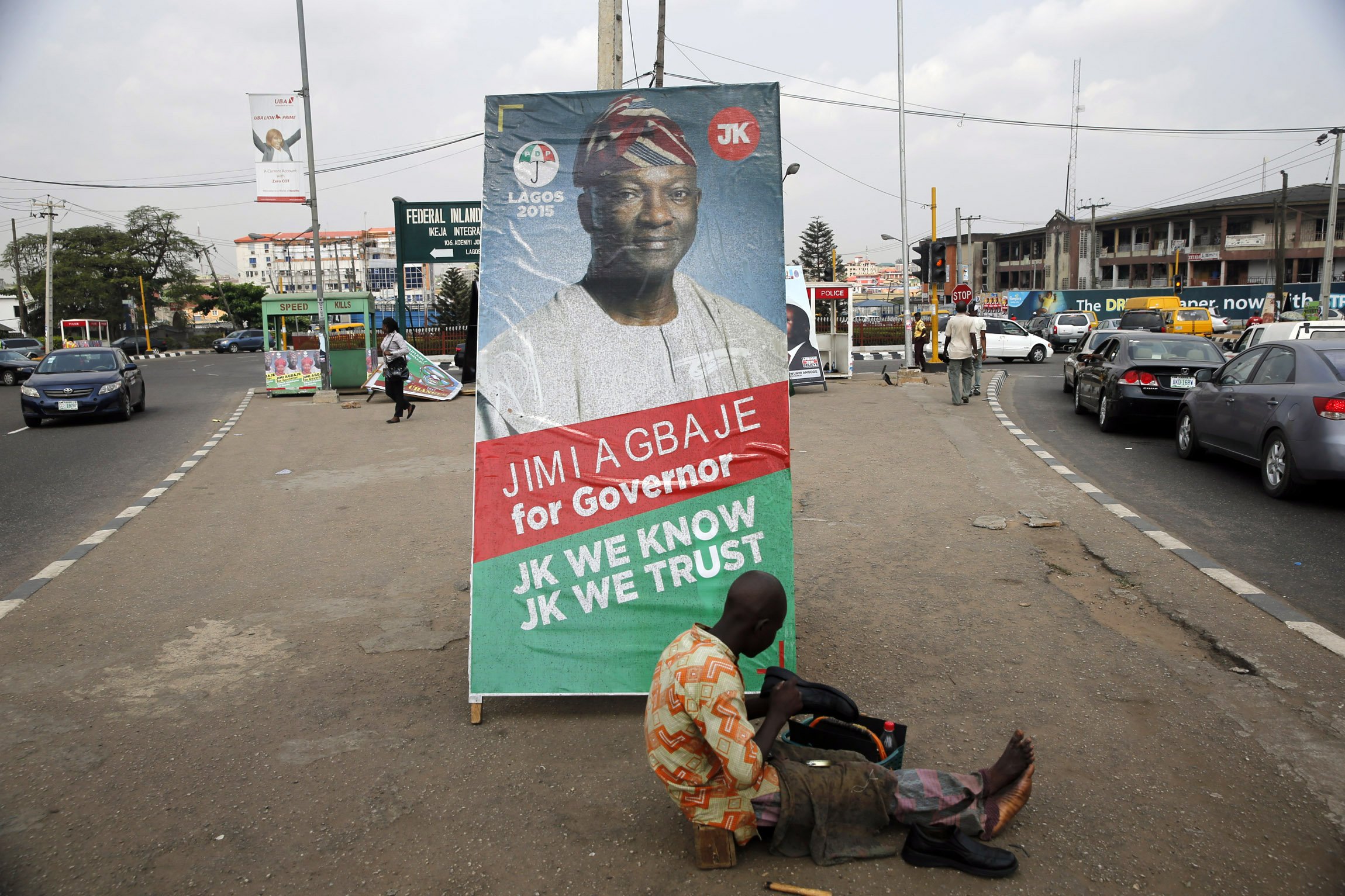
Over the past five years, an insurgency led by the Islamist Boko Haram group has driven 1.6 million Nigerians from their homes in the country’s northeast. So it comes as a bit of a surprise that Nigeria’s Independent National Electoral Commission (INEC) is only now starting to voice concern about how those citizens will vote in upcoming presidential elections, slated for Feb. 14. Incumbent Goodluck Jonathan is facing a strong challenge from former general Muhammadu Buhari.
On Feb. 4, just 10 days before the start of polling, INEC commissioner Amina Zachary told Reuters that the elections may have to be delayed over fears that not enough registered voters would actually be able to cast ballots. At issue is the requirement that citizens vote where they are registered — difficult enough when Boko Haram threatens to launch squads of suicide bombers across the region in the run-up to the election; impossible when your hometown is under militant occupation, as 20 out of 27 local governorships are in the three northeastern states of Borno, Adamawa and Yobe.
The commission is also worried about the slow rollout of its anti-fraud system. Each voter must have a Permanent Voter Card (PVC) in order to cast a ballot. The cards are digitally embedded with the voter’s fingerprint and can be read by a small battery-powered scanner. If the voter’s fingerprint doesn’t match the information on the card, he or she won’t be issued a ballot. This is designed to prevent accusations of ballot-box stuffing that have marred past elections.
But the problem is that not all voters have their cards yet. Only 44 million out of 68.8 million registered voters have received their cards, according to INEC, many of them in areas plagued by insurgency. In theory, would-be voters can pick up their cards at government offices, but not if fighting shuts those offices down. INEC has extended the deadline for picking up voter cards to Feb. 8, but if the number of cards distributed by then is too low, the commission may decide to postpone the vote. “Let’s see how the PVC distribution goes,” Zachary told Reuters. “Then maybe.”
It’s not just INEC that is concerned. In January, President Jonathan’s national security adviser Sambo Dasuki also suggested that the vote be delayed, for the same reason. And on Feb. 3, about 100 protesters stormed INEC headquarters, brandishing placards demanding a delay. “INEC, do the right thing,” they chanted. “We demand for the extension of election to allow Nigerian exercise their franchise.”
Never one to pass up a good conspiracy story, Nigeria’s Premium Times newspaper posited that the protesters, and Dasuki, may have been put up by Jonathan supporters who feel that their candidate might benefit from a longer campaign season. An Afrobarometer opinion poll released on Jan. 27 indicates that the election is too close to call, a sharp change in fortunes for Jonathan, who was considered a clear front runner as recently as early January, when campaigning started in earnest.
But if Boko Haram continues with its campaign of deadly bombings — a female suicide blew herself up in the northeastern state of Gombe on Feb. 2 — a delay in elections might actually harm Jonathan’s chances. Jonathan’s record on fighting Boko Haram is weak, and Buhari has made security the cornerstone of his campaign. In the end, delaying the elections could end up benefitting Boko Haram the most. More debate on who should be the next President means less attention on what should be done about militancy.
— Additional reporting by Naina Bajekal
More Must-Reads From TIME
- The 100 Most Influential People of 2024
- Coco Gauff Is Playing for Herself Now
- Scenes From Pro-Palestinian Encampments Across U.S. Universities
- 6 Compliments That Land Every Time
- If You're Dating Right Now , You're Brave: Column
- The AI That Could Heal a Divided Internet
- Fallout Is a Brilliant Model for the Future of Video Game Adaptations
- Want Weekly Recs on What to Watch, Read, and More? Sign Up for Worth Your Time
Contact us at letters@time.com